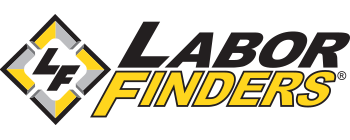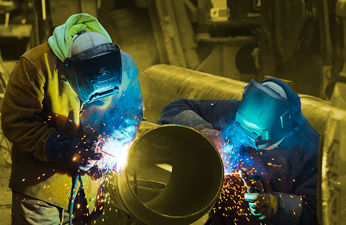-
Job Seekers
X
Job Seekers
Whether you're looking for a temp job or a permanent career, Labor Finders has you covered!
-
Explore
- How it works
- Industries
- Blog
- Locations
- Job Search
You May Also Be Interested In

2025 Employee of the Year
Learn more about our amazing Employee of the Year
-
-
Employers
X
Employers
Let us help you find the workers you need, when you need them.
You May Also Be Interested In
-
Industries
X
Employer Industries
Ready to staff your next project? Our staffing experts has the knowledge and the workers to cater to your unique staffing needs.
In this Section:
Job Seeker Industries
From construction to waste management, we have job openings in whatever industry you’re interested in.
In this Section:
-
About
X
About You
Getting matched to the right job, gaining the flexibility you want, making an impact in your community - at Labor Finders, it’s all about you!
-
You may also be interested in
- About Us
- Job Search Results
- Find an Office
- How it works
- Blog
About Us
With almost 200 offices nationwide, we’ve been putting people back to work for over 40 years. See why we’re a leader in the blue-collar staffing industry.
-
You may also be interested in
- About Us
- Media Center
- Video Library
- Leadership Team
- Careers
- In The Community
- History
-
- Location
Employment Readiness
The 4 Types of HVAC Jobs to Know About

Between new construction, and the increasing need to upgrade or replace heating and cooling systems, HVAC jobs are in very high demand. If you’re interested in this career, here are four career options to know about.
Fabricator
In order for a heating, cooling, and ventilation system to work properly, it needs the right parts. That’s where a fabricator comes in. In this HVAC job, workers assemble components such as ducts and their fittings using the measurements given to them by customers or contractors. These day laborers can use hand and power tools to cut, weld and shape sheet metal into these parts or work robotic machinery to get the job done. No matter how they create these components, people working in this HVAC job have to be able to work on multiple orders and meet their deadlines. To become a fabricator, you need accreditation from a trade school or a formal apprenticeship program.
Technician
As the most most common HVAC job, technicians do a lot of the hands on work when it comes to heaters and air conditioning units. These workers read and interpret blueprints to install and connect these systems to air ducts, water lines, and other critical components. Once installed, they may be called back to do inspections and run tests to make it’s working efficiently. In the event that it isn’t, HVAC techs are responsible for troubleshooting the problem and making the necessary repairs.
Sales
Another type of HVAC job to consider, especially if you’re looking to do something other than fabrication or maintenance is sales. You can use your expertise to help customers purchase the best HVAC system for their facility and budget. These salespeople can work in distribution plants and HVAC shops or travel to customers’ businesses and homes to do consultations. Other responsibilities may include gaining new customers, negotiating projects, and managing others. People working this HVAC job need to have great customer service skills, be familiar with various HVAC systems, and be a self-starter. As for formal education, you’ll need a bachelor’s degree.
Engineer
If you’re more of a designer at heart, then this is the HVAC job for you. HVAC engineers are responsible for creating the plans that fabricators and installers use. They often work with teams that include the clients and technicians to create new HVAC systems for residential and commercial projects. This HVAC job may also call for the redesign of existing systems. Engineers can work for government agencies, equipment sales offices, or design firms. Workers who are successful in this line of work have usually have excellent problem-solving skills and knows how to use CAD designing software. A bachelor’s degree in either HVAC engineering technology or mechanical engineering is required to get started in this HVAC job.
Are you an HVAC professional looking for the next big opportunity? Click here to work with one of branch professionals.














